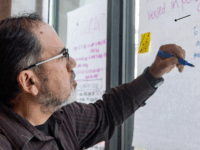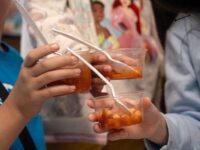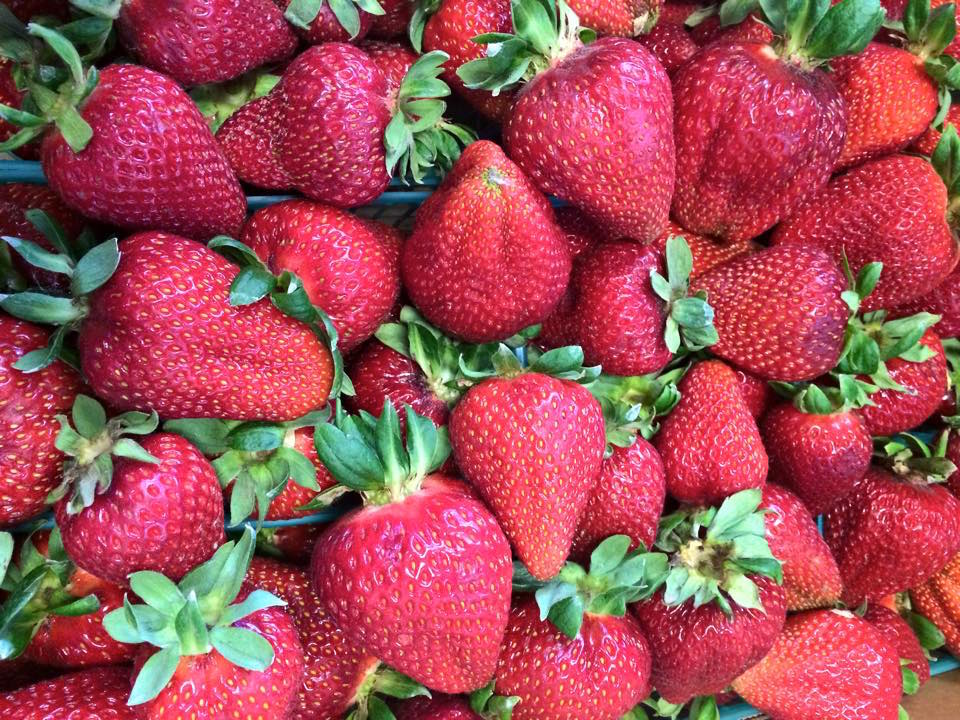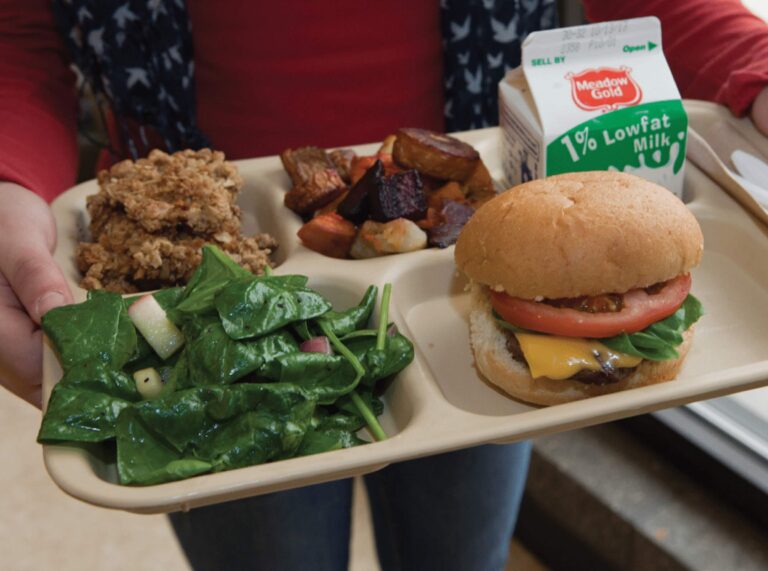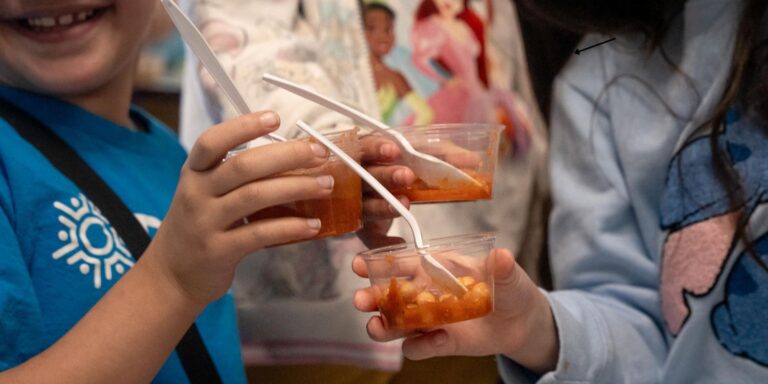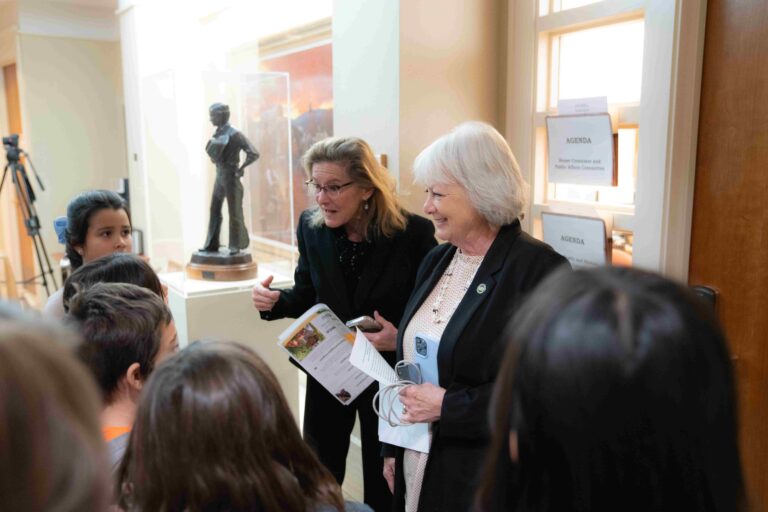Fairview Elementary can be a tough place to be a kid. Tucked away behind Main Street in High Point, North Carolina—ranked first in the nation for food insecurity—it’s a place where families learn to survive by holding on tightly to what they have. Amidst the vacant lots and abandoned furniture factories, Fairview’s school garden stands out like a red tomato on a withered vine, a place of vibrant color made for sharing the bounty. And in that garden grew De’Ondre’s strawberries.
De’Ondre was my third grade student during my first year of FoodCorps service. He was definitely a challenge, eager to help at first but quick to ditch the task at hand and follow his own curiosity. His teacher was exasperated and often made him sit out from garden time. One day on our way outside to the garden, De’Ondre held out a plastic bag. “Can I plant it?” he asked. I peered inside and saw a strawberry plug with unmistakable trios of green leaves and roots thick like twine. He told me it was from the Southside Community Garden down the road. My heart chirped to imagine him hanging out there after school, maybe bragging to someone, “we have a garden at my school, too.” While the other students measured the garden’s area and perimeter with rulers, De’Ondre planted that strawberry plug in an empty bed off to the side. He was proud.
The year ended and the strawberry stood alone all summer, holding on through the brutal heat and the “flip”, when the state took over the school and hired all new staff. Fall came around and I had new third grade classes to teach. I didn’t see De’Ondre around very much since I didn’t serve Fairview’s fourth grade classes, but when I did catch him in the hallway I would tell him that his plant was doing great. I checked on it sometimes in the winter, worrying that the brown papery leaves meant death. Spring came and before I knew it volunteer dill and sunflowers were popping up everywhere. De’Ondre’s strawberry plant came back to life, giving me the idea to make permanent strawberry beds so one day every Fairview student could taste homegrown berries. Because we didn’t plant until late that spring, I knew that our yield would be low. On harvest day we collected a grand total of three berries. I cut them up all the same and passed out tiny pieces to the third grade class that planted them. One girl spotted De’Ondre’s strawberry plant off to the side, much bigger now than the others. She asked if we could eat those, too. I told her it belonged to someone special.
After class I walked straight to the office and asked the receptionist if I could see De’Ondre for a few minutes. We called his teacher who was thrilled to hand him over—he had been in and out of the office all day and she was relieved to catch a break. De’Ondre and I walked across the sun-warmed lawn to the garden. I asked him about his year. For once that day he was quiet and calm—the garden can do that to a kid. As we reached his plant and he began picking I tried to press a story into his head: he had done something nice, I hadn’t forgotten it, and although it took a long time, it had turned into something sweet: a handful of red ripe strawberries. I wanted him to remember it like his own personal fable. On the walk back I asked if he was going to bring them home or eat them all himself. He grinned mischievously and popped them in his mouth. I smiled—who could resist? But just then he held out his hand, one small berry left in his palm. “Do you want one?” “No!” I said quickly, still holding on to that story, “They’re yours! You grew them! You get to eat them.” He shrugged and stuck it in his pocket. And in an instant I knew I was wrong—I should have eaten that strawberry. In a city where fresh fruit can be hard to come by, it was a big gesture for a fourth grade boy to part with a ruby red gem, especially one he had grown himself. I wish I had rewarded his generosity by accepting it.
It’s a funny thing about service—sometimes you focus so much on giving that you forget that receiving is a special kind of giving too. As I move forward from FoodCorps, I’ll never forget the lessons of De’Ondre’s strawberries: small gestures can produce fruit a year later, and when they do, let yourself share in the joy.

